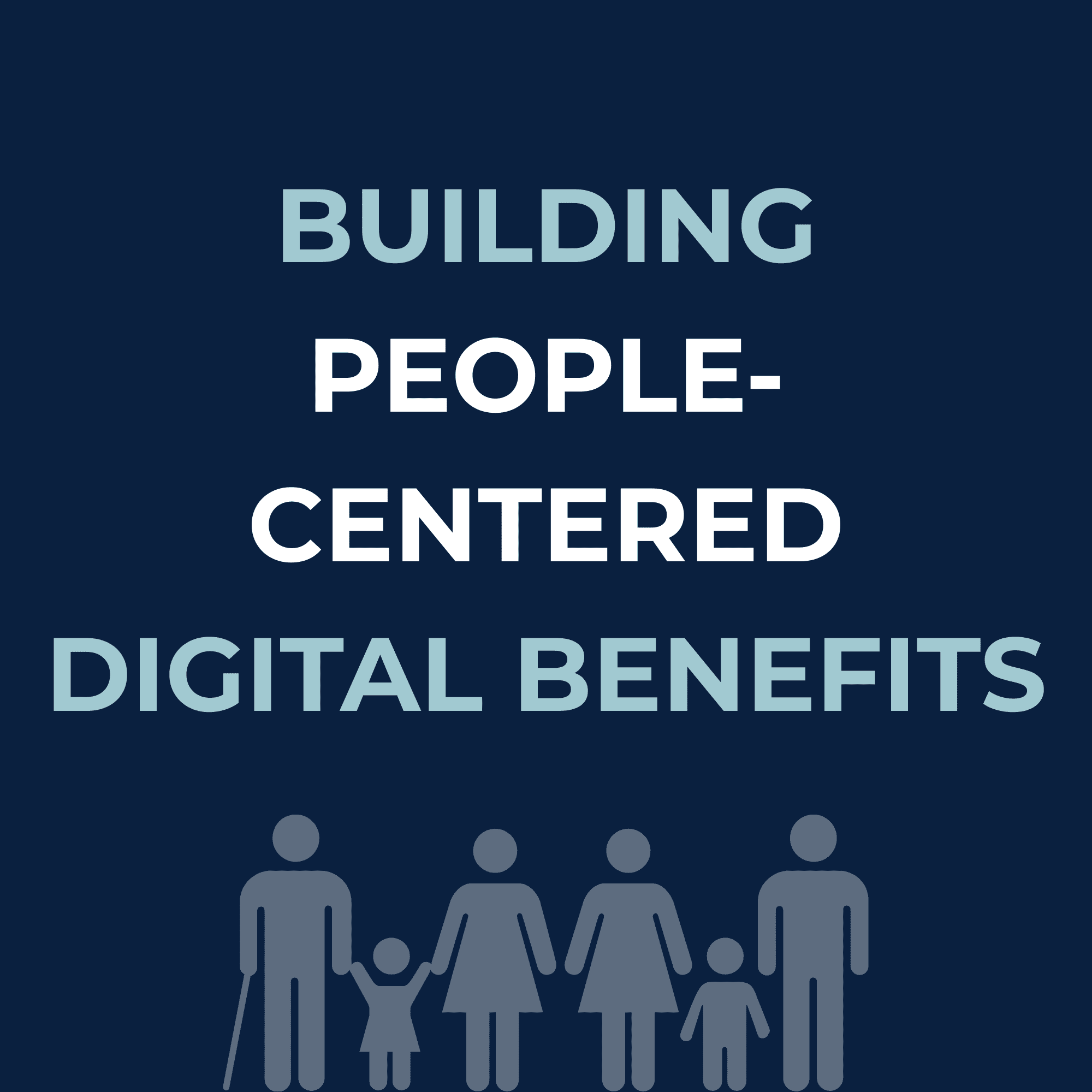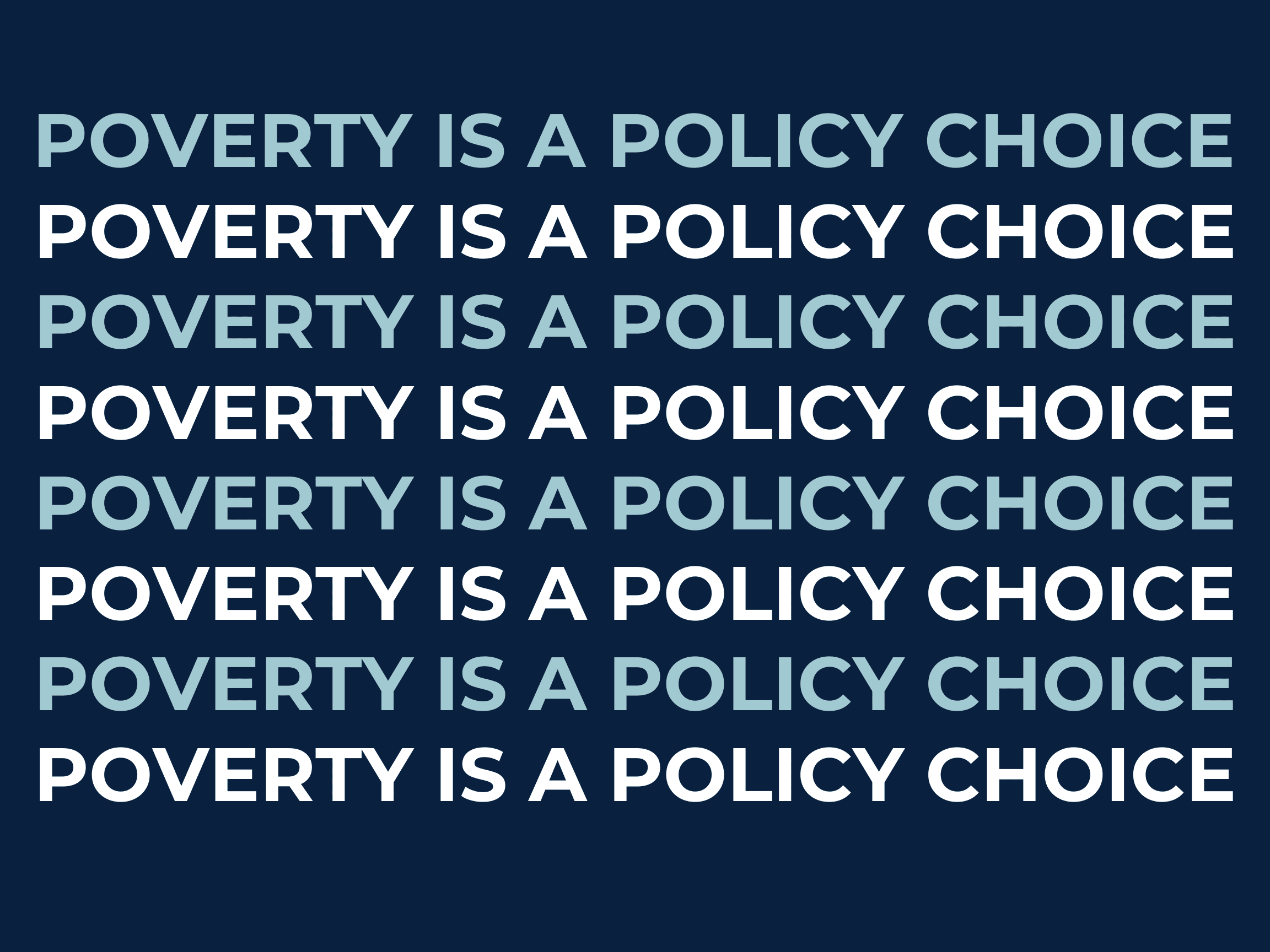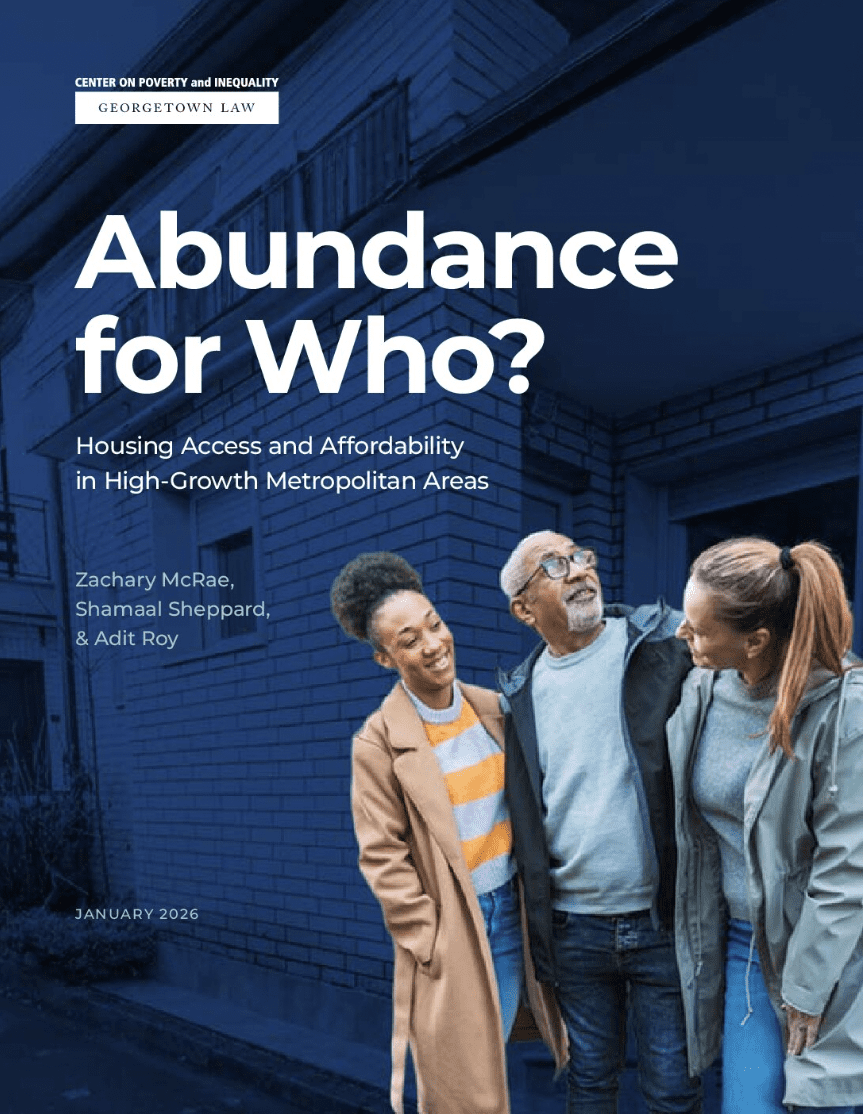An America without poverty is possible.
The Georgetown Center on Poverty and Inequality is a research center that generates policy solutions to improve the lives of people experiencing poverty in the United States.
Our Policy Issues
Good Jobs
Promoting job quality and job creation policies that ensure well-paying, secure jobs with fair benefits and build worker power.
Explore Good Jobs ≫
Public Benefits
Building the case for whole-family, community-centered approaches to food assistance, cash support, and social services.
Explore Public Benefits ≫
Income & Cash
Championing income supports—including cash assistance and tax credits—that help families meet their basic needs and promote economic mobility.
Explore Income & Cash ≫
Care
Designing policies that recognize and fairly compensate caregiving labor, including paid leave.
Explore Care ≫
Housing
Investing in housing as a social good, including solutions that secure stable, affordable housing for all families.
Explore Housing ≫
Latest from GCPI

Millions of people rely on public benefits programs to meet their basic needs, but outdated systems can make it difficult for families to access support. As states work to modernize public services, people-centered design offers a promising approach. Understanding how states translate principles into practice is essential for policymakers and administrators to create more effective public benefits systems.
This case study, part of the Georgetown Center on Poverty and Inequality’s People-Centered Digital Benefits Project, highlights how the state of New York’s Office of Customer Experience is transforming service delivery by embedding customer-centered design across state agencies. This brief explores the leadership structures, community partnerships, and human-centered design practices that helped New York redesign Medicaid renewals, modernize WIC outreach, and streamline child care assistance – offering lessons and practical strategies for other states.

At some point in our lives, nearly all of us will need to take time away from work to address a loved one’s or our own serious illness, or to welcome a new child. Paid leave policies support better health and child development outcomes for workers and children, and ensure the financial stability of workers, their families, and their employers. But too many workers lack access to paid leave. As states step up to fill the gaps, federal policy can help states expand access and strengthen programs. These two fact sheets examine recent federal proposals and show how federal–state partnership approaches would expand access to paid leave.
Federal-State Partnerships to Expand Paid Family and Medical Leave estimates how many workers – including low-paid workers – stand to benefit if paid leave policies such as the More Paid Leave for More Americans Act and the I-PLAN Act of 2025 are passed.
House Bipartisan Working Group on Paid Leave Legislation breaks down how the More Paid Leave for More Americans Act and the I-PLAN Act of 2025 proposals would improve access to paid family leave and harmonize existing state paid family leave programs.

January is National Poverty in America Awareness month, offering an opportunity to reflect on the policy choices the United States government does or does not make to ensure that economic opportunity is a right, hardship and instability are the exception, and children have what they need to reach their full potential. In this blog post, GCPI highlights important but perhaps less well-known facts about who experiences poverty in the United States, and which proven policy solutions, such as the Child Tax Credit, could dramatically reduce poverty.

Safe, stable housing is the foundation for economic well-being, workforce stability, and the strength of entire communities, but housing affordability is a nationwide crisis. This report analyzes new housing construction in six large metropolitan areas to yield insights into who benefits—and who doesn’t—from greater supply. We examine how housing access and affordability have shifted in Atlanta, Dallas, Houston, Phoenix, Seattle, and Washington, D.C.
The findings raise questions about whether, on their own, supply side solutions will be sufficient to address the nation’s worsening affordability crisis. This resource can help policymakers understand how current development patterns are affecting affordability and what it will take to ensure lower-income renters can find and keep stable homes.

Millions of Americans rely on public benefits to meet daily needs, yet unnecessary barriers and outdated technology too often make accessing help a struggle. GCPI’s People-Centered Digital Benefits Project highlights state innovations for modernizing benefits delivery systems to meet people’s needs.
In this case study, Visiting Fellow Andrés Argüello explores Maryland’s people-centered design approach to building the One Benefits application—which allows people to apply for multiple public benefits programs through a single, streamlined application—and the leadership, governance, and organizational structures that were critical to success.





